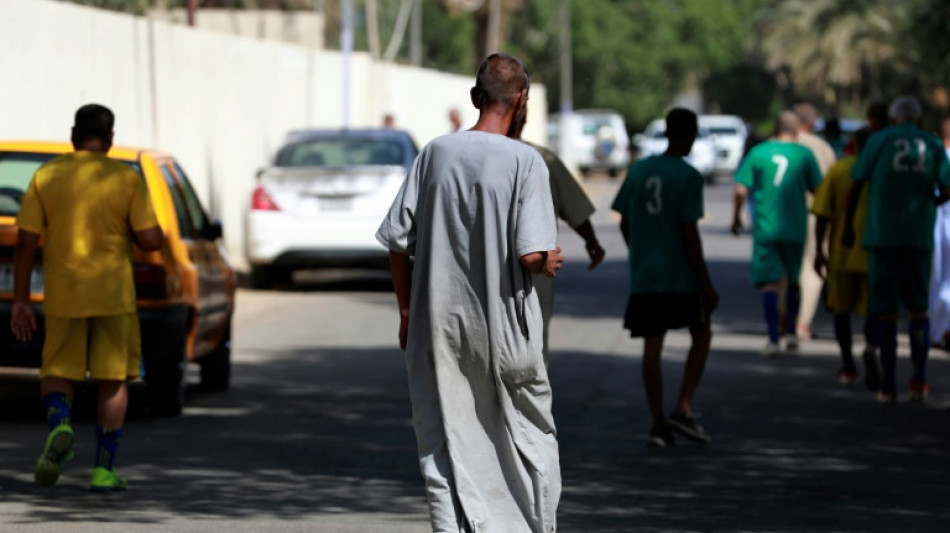
-
 Where Trump's tariffs could hurt Americans' wallets
Where Trump's tariffs could hurt Americans' wallets
-
Trump says 'very close to a deal' on TikTok

-
 Trump tariffs on Mexico: the good, the bad, the unknown
Trump tariffs on Mexico: the good, the bad, the unknown
-
Postecoglou denies taunting Spurs fans in Chelsea defeat

-
 Oscar-winning Palestinian director speaks at UN on Israeli settlements
Oscar-winning Palestinian director speaks at UN on Israeli settlements
-
With tariff war, Trump also reshapes how US treats allies

-
 Fernandez fires Chelsea into fourth as pressure mounts on Postecoglou
Fernandez fires Chelsea into fourth as pressure mounts on Postecoglou
-
South Korea court to decide impeached president's fate

-
 Penguin memes take flight after Trump tariffs remote island
Penguin memes take flight after Trump tariffs remote island
-
E.T., no home: Original model of movie alien doesn't sell at auction

-
 Italy's Brignone has surgery on broken leg with Winter Olympics looming
Italy's Brignone has surgery on broken leg with Winter Olympics looming
-
Trump defiant as tariffs send world markets into panic
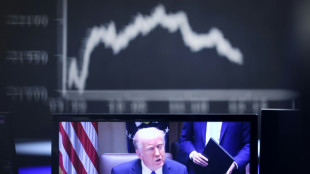
-
 City officials vote to repair roof on home of MLB Rays
City officials vote to repair roof on home of MLB Rays
-
Rockets forward Brooks gets one-game NBA ban for technicals

-
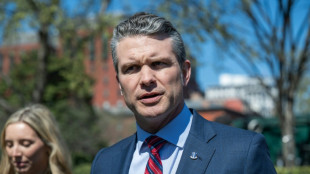 Pentagon watchdog to probe defense chief over Signal chat row
Pentagon watchdog to probe defense chief over Signal chat row
-
US tariffs could push up inflation, slow growth: Fed official
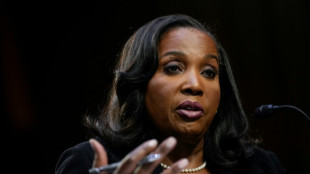
-
 New Bruce Springsteen music set for June 27 release
New Bruce Springsteen music set for June 27 release
-
Tom Cruise pays tribute to Val Kilmer

-
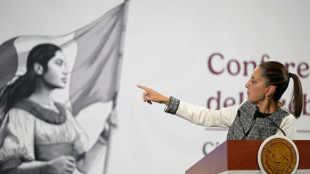 Mexico president welcomes being left off Trump's tariffs list
Mexico president welcomes being left off Trump's tariffs list
-
Zuckerberg repeats Trump visits in bid to settle antitrust case

-
 US fencer disqualified for not facing transgender rival
US fencer disqualified for not facing transgender rival
-
'Everyone worried' by Trump tariffs in France's champagne region

-
 Italy's Brignone suffers broken leg with Winter Olympics looming
Italy's Brignone suffers broken leg with Winter Olympics looming
-
Iyer blitz powers Kolkata to big IPL win over Hyderabad

-
 Russian soprano Netrebko to return to London's Royal Opera House
Russian soprano Netrebko to return to London's Royal Opera House
-
French creche worker gets 25 years for killing baby with drain cleaner

-
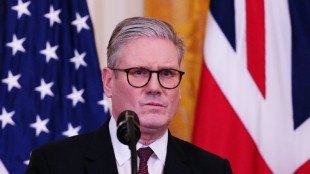 UK avoids worst US tariffs post-Brexit, but no celebrations
UK avoids worst US tariffs post-Brexit, but no celebrations
-
Canada imposing 25% tariff on some US auto imports
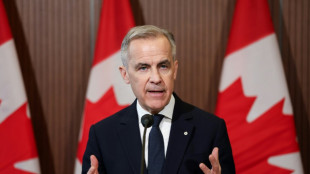
-
 Ruud wants 'fair share' of Grand Slam revenue for players
Ruud wants 'fair share' of Grand Slam revenue for players
-
Lesotho, Africa's 'kingdom in the sky' jolted by Trump

-
 Trump's trade math baffles economists
Trump's trade math baffles economists
-
Gaza heritage and destruction on display in Paris
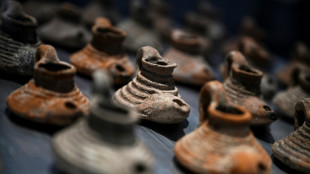
-
 'Unprecedented crisis' in Africa healthcare: report
'Unprecedented crisis' in Africa healthcare: report
-
Pogacar gunning for blood and thunder in Tour of Flanders

-
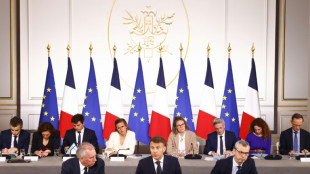 Macron calls for suspension of investment in US until tariffs clarified
Macron calls for suspension of investment in US until tariffs clarified
-
Wall St leads rout as world reels from Trump tariffs
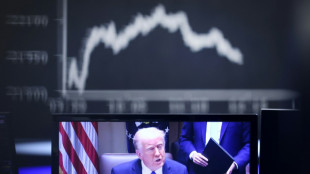
-
 Mullins gets perfect National boost with remarkable four-timer
Mullins gets perfect National boost with remarkable four-timer
-
Trump tariffs hammer global stocks, dollar and oil

-
 Authors hold London protest against Meta for 'stealing' work to train AI
Authors hold London protest against Meta for 'stealing' work to train AI
-
Tate Modern gifted 'extraordinary' work by US artist Joan Mitchell
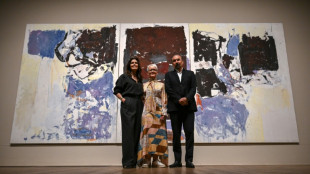
-
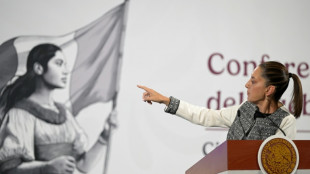 Mexico president welcomes being left off Trump's new tariffs list
Mexico president welcomes being left off Trump's new tariffs list
-
Tonali eager to lead Newcastle back into Champions League

-
 Lesotho hardest hit as new US tariffs rattle Africa
Lesotho hardest hit as new US tariffs rattle Africa
-
Stellantis pausing some Canada, Mexico production over Trump auto tariffs

-
 Rising odds asteroid that briefly threatened Earth will hit Moon
Rising odds asteroid that briefly threatened Earth will hit Moon
-
Italy reels from Brignone broken leg with Winter Olympics looming

-
 Is the Switch 2 worth the price? Reviews are mixed
Is the Switch 2 worth the price? Reviews are mixed
-
Ancelotti’s tax trial wraps up in Spain with prosecutors seeking jail

-
 Civilians act to bring aid to Myanmar earthquake victims
Civilians act to bring aid to Myanmar earthquake victims
-
US trade gap narrows in February ahead of bulk of Trump tariffs


Iraqis haunted by war battle mental health issues
Raghad Qassem searched all over Iraq's capital Baghdad for a psychologist she could talk to about her problems, before finally settling for consultations online.
It was the best she could do in a state haunted by decades of conflict and trauma, where mental health is poorly treated and professionals are few and far between.
The World Health Organization estimates that in a country of 43 million, there are just two mental health workers for every 100,000 Iraqis.
Qassem admitted she was long oblivious to her mental health needs, and only became aware of their importance "when hitting my thirties".
It was while quarantined during the Covid pandemic that she "began to recognise symptoms of depression", Qassem said.
"I realised that's what I had," said the 34-year-old women's activist.
She wanted to talk directly to a psychologist in Baghdad, because "when I speak I like to have the person in front of me".
Many of her friends recommended that she see a doctor, but she was hesitant to do so because those who did "were treated with pills".
Turning instead to the internet, she spoke to several psychologists, including a Lebanese woman with whom she was able to unravel the reasons for her unhappiness.
- Demand is great -
"It's because of her that I became aware of an accumulation of trauma from the war, the fear and anxiety I had in 2003 and since," she said, harking back to the US-led invasion to oust Saddam Hussein which precipitated one of the bloodiest eras in Iraqi history.
The world has closely followed the war in Gaza between Israel and Palestinian militant group Hamas, which has claimed many thousands of lives –- but such suffering and the psychological trauma it triggers have also plagued Iraq.
Ravaged by war and rocked by Islamic State group attacks, Iraq's demand for mental health professionals is great, but help is hard to come by.
Baghdad's Al-Rashad psychiatric hospital receives patients suffering from serious psychological illnesses, such as schizophrenia, and offers outpatient treatment for depression, anxiety and post-traumatic stress disorder.
At the hospital, haggard-looking patients can be seen wandering alone through the corridors. Some have been at Al-Rashad for decades, said its director Firas al-Kadhimi.
"There's a shortage of specialised doctors," he told AFP.
Kadhimi's hospital has only 11 psychiatrists for its 1,425 patients, aged between 14 and 70, the director said.
"I don't think there's anywhere else in the world where a doctor has to treat 150 patients in the space of 30 days," he said.
Another five social workers are on staff at the facility, but they have to see 100 patients daily and sometimes do their consultations three at a time.
There are however music and art workshops for patients.
In a small theatre with red seats, three elderly people on stage rehearsed a skit prepared by a former hospital employee, who comes in to help.
- People more receptive -
Previously, it might have been difficult for an Iraqi to say, "I have a mental problem", but attitudes have become more accepting thanks to news and social media.
"The number of visitors is rising in the consultation clinics," Kadhimi said.
Psychologist Zeinab Abdel Razaq works with French charity Doctors Without Borders (MSF) in Baghdad.
Razaq told AFP that while there may still be a mental health "stigma" in Iraq, it had "begun to decrease".
"People are more receptive to psychology," she said.
One patient, Zeinab Abdelwahab, said she initially came for physiotherapy and stayed for mental health care.
After several months of sessions, "I noticed a radical change in my mood," said the thirty-something with a painful personal history.
Her mother died, she said, her father was sick, she suffers from polio and has had several falls, fracturing her knees and pelvis.
Abdelwahab recognised that her own perception of psychological care had been distorted by social beliefs.
"When I came here, I realised that it is not just for crazy people," she said.
"They're just people who need to speak to someone else, seeking comfort about how they feel. And with no restrictions."
D.Kaufman--AMWN


